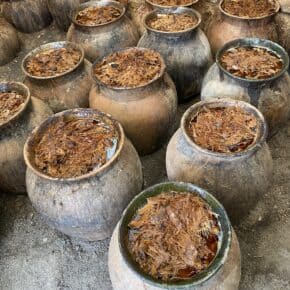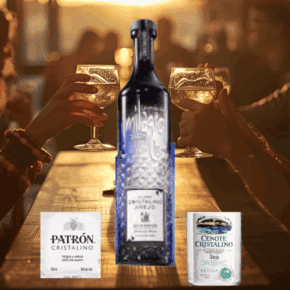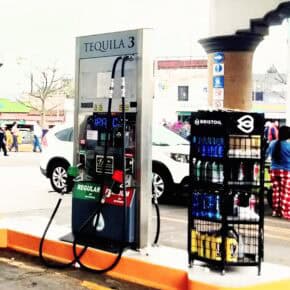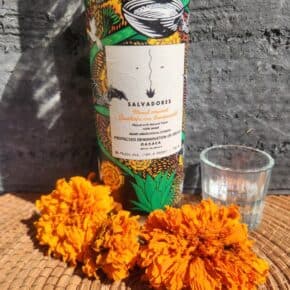As you peruse the agave spirits section at your local liquor store, you may have noticed that some bottles are not labeled mezcal, tequila, bacanora, or raicilla. If you have a particularly keen eye, you may have noticed that you no longer see raicilla or mezcal on the labels of brands that once practically defined the categories. So what’s the deal with these bottles labeled as agave spirits, or destilados de agave, or agave distillates?
As you may have surmised, destilado de agave translates to agave distillate. Chacolo, Real Minero, Caballito Cerrero, and La Venenosa are prominent examples of agave distillates. Some brands, like Chacolo, fall outside the denomination of origin (DO) for mezcal and therefore cannot legally be labeled mezcal. (But also don’t want to be.) Meanwhile, Real Minero was once labeled as mezcal and is now a destilado de agave. Caballito Cerrero is a classic and revered tequila that has been made for centuries within the official tequila zone but is no longer labeled as a tequila. Why?
Every story is different, but can typically be distilled (pun intended) into the controversial subject of Mexican DOs, or denominations of origin and their accompanying Norms, or regulations (sometimes known as Normas or NOMs). While proponents argue that Mexico’s DOs protect Mexican intellectual property and regional folkways, the dissenting argument has grown louder over the years. This is particularly true in the mezcal world, where a growing contingent argues that certain regulations are at odds with producing the best mezcal, and have actually forced mezcaleros and taberneros to denigrate their production processes or limit which types of agave they can use. Another issue is the high cost of certification.
For these reasons, some producers or brand owners opt out of labeling their product as mezcal, tequila, raicilla, or bacanora and instead sell it as a destilado de agave. In many cases, these people have been calling their product mezcal (or some regional name for mezcal) for generations. The decision to no longer call their mezcal by its real name can be, as it was in the case of Real Minero, very emotional, but also a way of breaking free them from a stifling system. This choice can be viewed as both pragmatic and an act of rebellion.
Which is not to say that the shelves of your liquor store are stocked with unregulated agave products. “Agave distillates” simply don’t have to meet the specific requirements set forth by the Norms and policed by the regulatory bodies (such as the CRT and COMERCAM) that strictly govern certified mezcal and tequila.
It’s interesting to note that all the mentioned brands represent families that have been making mezcal for generations, and that these are some of the most legitimate tequilas, mezcals, and raicillas available on the market (no diffusors here!). Flaws in the DO and regulatory structure have created a perverse situation where giant brands use industrial processes to make mezcal, and some of the most definitive and best mezcal is, legally speaking, not mezcal at all.
For a particularly weird example of this conundrum, check out Is “tuxca” the sign of a broken DO system in Mexico?












Leave a Comment